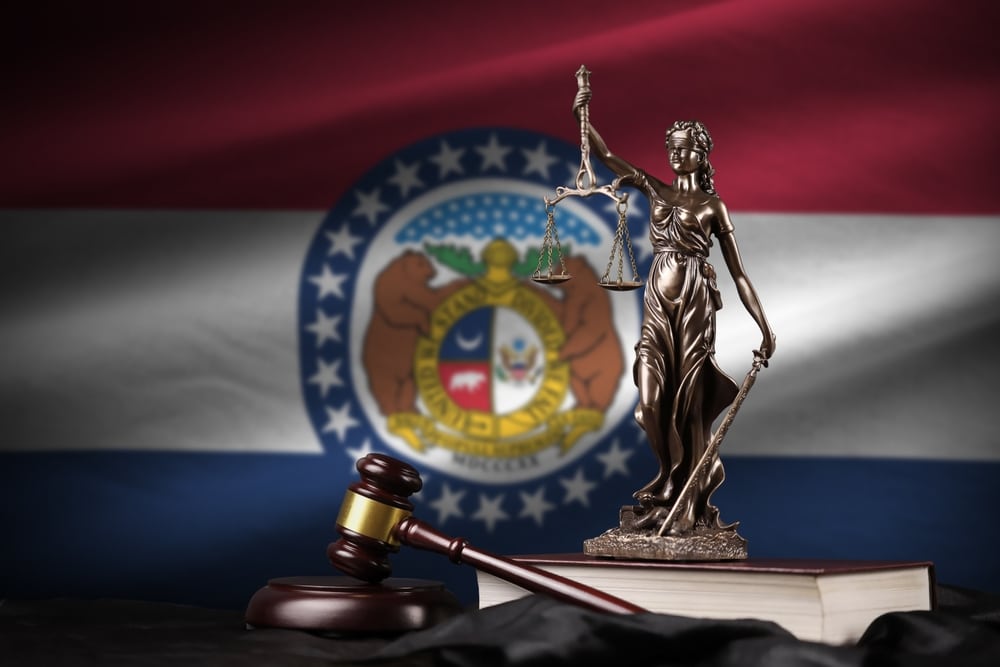Missouri Bankruptcy Guide

Introduction
Navigating bankruptcy in Missouri requires understanding both federal bankruptcy laws and state-specific requirements that affect how cases proceed through the court system. This comprehensive guide outlines the key aspects of filing bankruptcy in Missouri, including court locations, property exemptions, and state-specific requirements.
Understanding Missouri’s bankruptcy laws and procedures is crucial for residents considering this important financial decision. The state’s approach to bankruptcy reflects both urban and rural needs, with special considerations for agricultural operations and varying property values across different regions.
Missouri’s bankruptcy system operates through two federal districts, each with multiple locations to serve residents throughout the state. This structure ensures accessibility while maintaining consistent application of both federal and state-specific bankruptcy laws.
The state’s bankruptcy framework includes unique protections for Missouri residents, including specific property exemptions that often differ significantly from federal exemptions. Understanding these state-specific protections is essential for maximizing the benefits of bankruptcy protection.
Missouri’s bankruptcy process requires careful attention to local rules, procedures, and timelines. Working with qualified professionals who understand both federal bankruptcy law and Missouri’s specific requirements can help ensure successful navigation of the process.

State Bankruptcy Courts
Eastern District of Missouri
The Eastern District, headquartered in St. Louis, serves residents in the eastern portion of the state. The main courthouse provides comprehensive bankruptcy services and hosts most creditor meetings and hearings.
Additional locations in Cape Girardeau and Hannibal extend the court’s reach to rural communities, offering convenient access for residents in these areas. These satellite offices provide essential services while reducing travel burdens for residents outside the St. Louis metropolitan area.
The court’s website (www.moeb.uscourts.gov) serves as a central resource for forms, procedures, and announcements, helping ensure all parties have access to current information and requirements.
Western District of Missouri
The Western District maintains its headquarters in Kansas City, serving as the primary location for bankruptcy proceedings in western Missouri. The courthouse handles a high volume of cases while providing essential services to urban residents.
Additional locations in Jefferson City, Springfield, and Joplin ensure comprehensive coverage of western Missouri. Each location maintains specific schedules for hearings and creditor meetings, accommodating local needs.
The district’s website (www.mowb.uscourts.gov) provides essential information about filing procedures, local rules, and court operations, serving as a valuable resource for debtors and attorneys.
Missouri Property Exemptions
Homestead Exemption
Missouri provides a homestead exemption of $15,000 per household, protecting equity in a primary residence. This protection applies regardless of property type, including traditional homes and mobile homes.
The exemption has no acreage limit, particularly benefiting rural residents and small farmers. This flexibility reflects Missouri’s diverse housing needs across urban and rural areas.
The protection extends to sale proceeds for six months after the sale of a primary residence, providing crucial transition time for residents who must relocate. Special protections for married couples can enhance these benefits through joint filing.
Personal Property Exemptions
Missouri allows residents to protect up to $3,000 in vehicle equity, helping ensure reliable transportation for work and daily needs. This exemption applies to any type of motor vehicle used for personal transportation.
Personal items receive varying levels of protection, including:
- Full protection for clothing
- Up to $1,500 for books and family photos
- Up to $3,000 for household goods
- Full protection for wedding rings
- Up to $500 for other jewelry
- Full protection for health aids
- Three months’ supply of food and fuel
These exemptions help preserve basic living standards and dignity during the bankruptcy process.
Wage Exemptions
Missouri protects wages using a formula that allows residents to keep the greater of:
- 90% of disposable earnings
- 30 times the federal minimum wage
Enhanced protections exist for heads of households, providing additional security for families facing financial difficulties.
Special protections apply to government benefits, ensuring these essential support payments remain available to recipients.
Tools of Trade
The state provides up to $3,000 in protection for tools, equipment, and other items necessary for earning a living. This protection extends to:
- Professional books and equipment
- Farm implements
- Business computers
- Work-related vehicles
These exemptions help ensure individuals can continue working and earning income during and after bankruptcy.
Additional Exemptions
Missouri provides various levels of protection for:
- Life insurance policies and proceeds
- Most retirement accounts
- Public benefits
- Workers’ compensation benefits
- Veterans’ benefits
- Social Security payments
These protections help preserve long-term financial stability and essential benefits.
Special Missouri Considerations
State-Specific Requirements
Missouri requires completion of approved credit counseling before filing bankruptcy. This requirement helps ensure filers understand all available options.
Residency requirements must be met to use Missouri exemptions, typically requiring domicile in the state for at least 730 days before filing.
Agricultural considerations reflect the state’s farming heritage, with special provisions for seasonal income and farm operations.
Urban and rural distinctions affect various aspects of bankruptcy proceedings, including property valuations and court accessibility.
Median Income Thresholds
Current median income levels for Missouri residents are:
- Single person: $54,482
- Family of 2: $68,954
- Family of 3: $79,674
- Family of 4: $92,486
- Additional members: Add $9,900 each
These thresholds help determine Chapter 7 eligibility and Chapter 13 plan requirements.
Missouri-Specific Timeline
Key timeline elements include:
- Credit counseling must be completed within 180 days before filing
- Meeting of creditors typically occurs 21-40 days after filing
- Seasonal considerations affect agricultural cases
- Weather-related extensions may apply to certain deadlines
Common Questions in Missouri
Can I Use Federal Exemptions?
Missouri requires residents to use state exemptions exclusively. Federal exemptions are not available to Missouri residents who meet the residency requirement.
This requirement means understanding state exemptions is crucial for proper bankruptcy planning.
The state’s exemption scheme generally provides comprehensive protection for essential assets.
Agricultural Property?
Missouri provides special protections for:
- Farm equipment and implements
- Crops and livestock
- Seasonal income variations
- Agricultural property values
These provisions reflect the importance of agriculture to the state’s economy.
Urban vs Rural Filing?
Different considerations apply based on location:
- Court accessibility and travel requirements
- Property value variations between regions
- Transportation needs for court appearances
- Available community resources and support
Attorney Requirements
Attorneys practicing bankruptcy in Missouri must:
- Be admitted to practice in Missouri
- Gain admission to federal court
- Maintain electronic filing certification
- Complete any required local rules training
Filing Fees (2024)
Current filing fees are:
- Chapter 7: $338
- Chapter 13: $313
Fee waivers may be available for qualified individuals, and installment payments can be arranged with court approval.
Special Circumstances
Natural Disasters
Missouri’s bankruptcy courts maintain specific provisions for:
- Tornado-related filings
- Flood impact considerations
- Emergency filing procedures
- Coordination with FEMA assistance
Agricultural Operations
Special considerations exist for:
- Protection of farm equipment
- Seasonal income patterns
- Crop-related issues
- Livestock considerations
Urban/Rural Differences
Important distinctions include:
- Property value variations
- Court location accessibility
- Transportation requirements
- Available community resources
Conclusion
Missouri’s bankruptcy system provides comprehensive protection for residents facing financial difficulties, with careful consideration given to both urban and rural needs. The state’s specific exemptions and procedures reflect a practical understanding of residents’ diverse circumstances.
Success in Missouri bankruptcy cases often depends on understanding and properly utilizing state-specific protections and procedures. Working with qualified professionals who understand both federal bankruptcy law and Missouri’s particular requirements can significantly impact outcomes.
The state’s bankruptcy framework continues to evolve, with regular updates to exemption amounts and procedural requirements. Staying informed about these changes through court websites and legal resources helps ensure optimal use of available protections.
Regular evaluation of bankruptcy procedures and requirements helps maintain an effective system that serves both debtors and creditors while promoting financial recovery and stability. The state’s commitment to accessible bankruptcy services through multiple court locations enhances these goals.
Agricultural considerations, natural disaster provisions, and urban/rural distinctions demonstrate Missouri’s commitment to addressing the diverse needs of its residents through the bankruptcy process. This comprehensive approach helps ensure that bankruptcy protection remains an effective tool for financial recovery across the state.
The success of any bankruptcy filing ultimately depends on careful preparation, accurate documentation, and compliance with all state and federal requirements. Residents considering bankruptcy should seek qualified legal counsel to ensure their rights are protected throughout the process.
